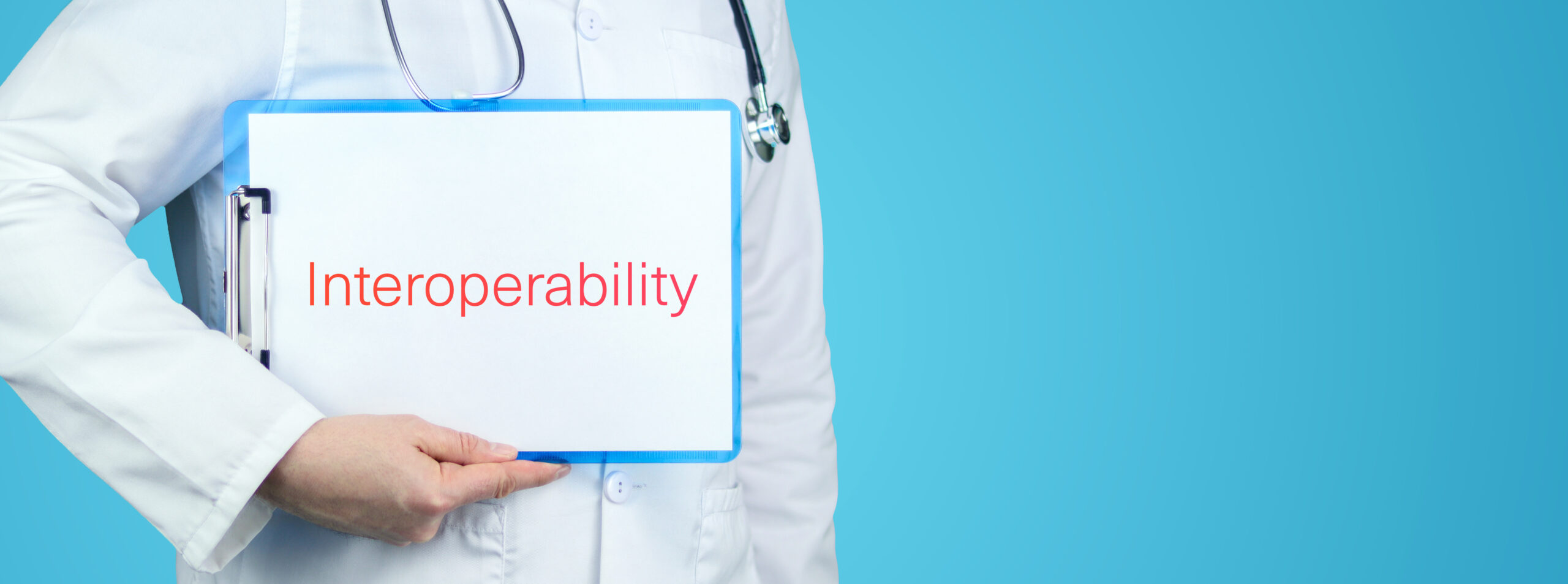The Growing Importance of Interoperability in Healthcare

In an era defined by digital transformation, interoperability in healthcare has become a critical priority—not just for patient care but also for healthcare operations and staffing. The ability of healthcare systems to share, interpret, and use patient information seamlessly across platforms helps streamline workflows, reduce administrative burdens, and improve workforce efficiency—key outcomes that medical recruitment companies and healthcare organizations alike are striving to achieve.
Healthcare interoperability is defined as the ability of different information systems, devices, and applications to access, exchange, and cooperatively use data in a coordinated manner. In practice, it means that a physician in one hospital can instantly access a patient’s complete medical history from another, leading to faster, safer, and more informed care decisions.
For industry leaders, healthcare interoperability is more than a technology upgrade—it’s a strategic shift that influences staffing, culture, and long-term organizational resilience.
What Is Healthcare Interoperability and Why Does It Matter?
At its core, healthcare interoperability depends on open standards, consistent regulatory frameworks, and unified EHR data sharing standards. A systematic literature review reported that key benefits of interoperability include:
- Comprehensive patient histories that enable more accurate diagnoses and personalized treatment plans.
- Fewer errors and administrative burdens, reducing clinician burnout.
- Improved population health insights through data-driven research and analytics.
These benefits also create ripple effects across the healthcare workforce. With access to better data, clinicians spend less time chasing records and more time caring for patients—a critical advantage amid ongoing physician and nurse shortages.
Health Data Exchange Challenges
Despite steady progress, major healthcare technology adoption barriers continue to limit system-wide interoperability. These challenges stem not only from technology gaps but also from regulation, market behavior, and organizational complexity.
Information Blocking and Vendor Practices
Information blocking remains a leading obstacle in healthcare data exchange. Some EHR vendors have restricted data sharing or charged providers for transferring information outside proprietary systems—hindering collaboration and continuity of care. The 21st Century Cures Act introduced rules to curb these practices, and since 2020, financial penalties apply to entities that obstruct lawful data exchange—an important step toward fairer healthcare data governance.
Patient Identification Challenges
The U.S. lacks a universal patient identifier, forcing healthcare systems to rely on inconsistent data points such as names or birth dates. Without standardization, patient matching errors are frequent, slowing health data exchange and affecting care coordination. Privacy concerns have also prevented adoption of a national identifier initially proposed under HIPAA.
Lack of Unified Data Standards
Despite new frameworks for digital health data integration, proprietary formats remain common. Small inconsistencies in data structure or formatting can disrupt interoperability and force manual workarounds, keeping true data fluidity out of reach.
Cultural and Organizational Resistance
Implementation costs, compliance worries, and staff resistance also hinder progress. Without leadership support and clear governance, interoperability initiatives struggle to gain traction or scale effectively.
The Healthcare Workforce and Interoperability
The push for interoperability in healthcare has major implications for the workforce. As automation and AI tools take on more administrative tasks, healthcare professionals must adapt to new roles and skill sets.
Reduced Burnout and Improved Retention
Interoperability reduces redundant documentation and manual data entry—two leading causes of clinician frustration. This improves job satisfaction and retention across care teams.
Evolving Skill Requirements
Interoperability creates new staffing needs. Organizations increasingly seek professionals who understand both clinical care and data analytics. New interoperability staffing roles are emerging, such as data integration specialists, interoperability project managers, and digital health coordinators.
Recruitment Strategies
A skilled physician recruiter or medical recruitment company can help identify candidates with cross-disciplinary expertise in clinical workflows and health IT. Locum tenens providers with EHR experience are also valuable assets during transitions or system upgrades.
For healthcare employers, building a workforce that understands technology, data privacy, and patient experience is key to sustaining interoperability success.
The Implementation of Interoperability Staffing Roles
Rolling out an interoperability strategy requires careful coordination between technology leaders and HR departments. Successful implementation involves four key steps:
1. Assess existing workforce capabilities
Conduct a skills audit to identify which team members can be trained to manage data workflows, compliance, or analytics.
2. Partner with technology vendors
Collaboration with EHR providers or interoperability specialists ensures that staff training aligns with the latest tools and standards.
3. Redefine job descriptions
As digital transformation progresses, new healthcare roles will be needed to oversee data governance, integration projects, and performance metrics.
4. Involve clinical staff early
Engaging nurses, physicians, and allied health professionals early in the process encourages adoption and helps design systems that fit real-world workflows.
What Does the Future Hold for Healthcare Interoperability?
Looking ahead, several trends are shaping the next chapter of interoperability in healthcare:
- AI and interoperability in healthcare will unlock predictive analytics and personalized care, helping clinicians anticipate patient needs before symptoms worsen.
- Increased regulation under the 21st Century Cures Act and TEFCA (Trusted Exchange Framework and Common Agreement) will push for greater nationwide data exchange.
- Patient empowerment is rising. Individuals expect real-time access to their health records through mobile apps and digital portals.
- Flexible staffing models such as locum tenens will help organizations fill specialized interoperability staffing roles quickly while maintaining care continuity.
To sustain progress, healthcare leaders must treat interoperability as both a technological and cultural transformation, supported by ongoing education, skilled recruitment, and a clear vision for data-driven care.
Interoperability in healthcare is the foundation for a smarter, more connected future of medicine. While technical and policy challenges remain, the long-term rewards—better patient outcomes, reduced burnout, and stronger operational efficiency—make it worth the effort.



